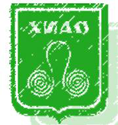Recognizing Non-HDL Cholesterol: A Comprehensive Guide
Cholesterol is a crucial fatty substance discovered in the cells of our body that help in various processes, consisting of the production of hormones, food digestion, as well as the formation of cell membrane layers. While cholesterol is required for our body to function correctly, a too much quantity can bring about health and wellness complications, specifically when it involves particular sorts of cholesterol.
One such kind is non-HDL cholesterol, which has gained recognition over the last few years because of its organization with heart diseases. In this article, we will certainly oculax para que sirve explore the details of non-HDL cholesterol, its value, and also exactly how to handle it efficiently.
What is Non-HDL Cholesterol?
Non-HDL cholesterol describes the total amount of cholesterol lugged by low-density lipoproteins (LDL) and other cholesterol-rich bits in the blood stream. Unlike LDL cholesterol, which is typically referred to as «poor» cholesterol because it contributes to the buildup of plaque in the arteries, non-HDL cholesterol includes numerous sorts of harmful cholesterol bits.
To determine non-HDL cholesterol, subtract the high-density lipoprotein (HDL) cholesterol degrees from the complete cholesterol levels. This method offers a much more exact representation of the cholesterol that adds to the growth of cardiovascular diseases.
Specialists think about non-HDL cholesterol to be a much better forecaster of cardiovascular disease risk contrasted to LDL cholesterol alone. This is because non-HDL cholesterol envelops all atherogenic lipoproteins, including LDL, very low-density lipoprotein (VLDL), intermediate-density lipoprotein (IDL), as well as lipoprotein(a) [Lp(a)] By examining non-HDL cholesterol degrees, healthcare specialists can efficiently evaluate an individual’s danger for heart problem.
Understanding the Importance of Non-HDL Cholesterol
Non-HDL cholesterol plays a critical role in recognizing people that go to a greater danger of creating cardiovascular diseases. High levels of non-HDL cholesterol are connected with a boosted probability of plaque formation, which can lead to atherosclerosis, coronary artery illness, heart attacks, as well as strokes.
Checking non-HDL cholesterol degrees is particularly crucial for people that battle with diabetic issues, metabolic disorder, or existing heart conditions. By handling non-HDL cholesterol effectively, healthcare experts diaform + can significantly decrease the danger of heart-related issues for these individuals.
Additionally, non-HDL cholesterol measurements can be used to review the efficacy of cholesterol-lowering therapies, such as statins. By keeping track of the reduction in non-HDL cholesterol degrees in time, doctor can assess the efficiency of continuous treatments and readjust treatment strategies accordingly.
The following ideas can assist people manage their non-HDL cholesterol levels:
- Adopting a heart-healthy diet regimen abundant in fruits, vegetables, whole grains, and also lean proteins while limiting saturated and trans fats
- Incorporating normal exercise into everyday regimens
- Preventing cigarette and also extreme alcohol intake
- Keeping a healthy and balanced weight
- Adhering to prescribed medication regimens, if essential
- Frequently keeping track of cholesterol degrees and also scheduling routine exams with doctor
Non-HDL Cholesterol as well as Children
Non-HDL cholesterol levels are not only relevant to grownups however also to kids, as atherosclerosis can start in childhood. Early screening and also treatment can assist recognize as well as manage high non-HDL cholesterol levels in kids, avoiding future cardiovascular issues.
Youngsters with a family background of high cholesterol, excessive weight, diabetes mellitus, or other risk aspects may require cholesterol testing at an earlier age. Healthcare professionals can offer support on when to start cholesterol screenings for kids as well as establish ideal interventions to advertise heart wellness from an early age.
- Urging a healthy diet plan and healthy way of life for children
- Promoting normal physical activity and limiting less active actions
- Developing a supportive setting that supports positive health behaviors
- Arranging routine exams with doctor to monitor cholesterol degrees and also analyze total health and wellness
Conclusion
Non-HDL cholesterol is a critical consider analyzing a person’s threat for heart diseases. By understanding the relevance of non-HDL cholesterol as well as applying required lifestyle modifications, people can efficiently handle their cholesterol degrees and lower their danger of heart-related difficulties.
Normal exams, appropriate nutrition, exercise, and adherence to suggested medicines are all important elements of keeping optimum non-HDL cholesterol levels. By taking positive actions in the direction of heart health, individuals can improve their total wellness as well as lead a satisfying, healthy life.






Comments are closed
Sorry, but you cannot leave a comment for this post.